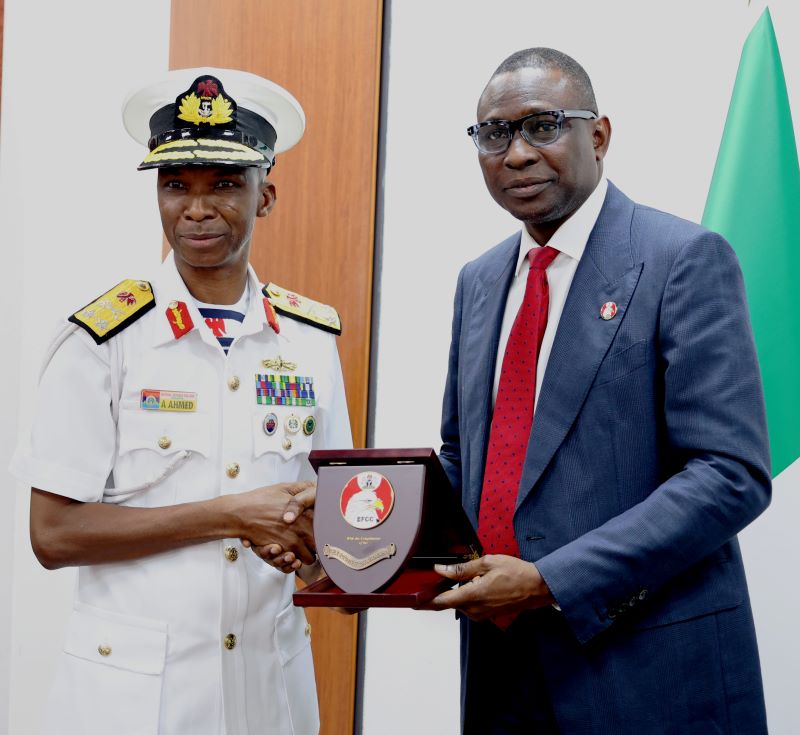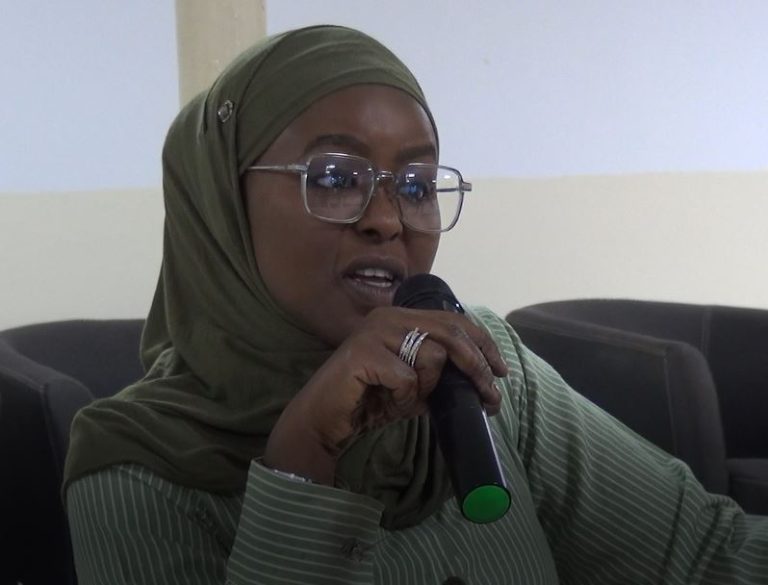
The Economic and Financial Crimes Commission (EFCC) and the National Defence College (NDC) have agreed to initiate collaborative efforts aimed at enhancing the College’s curriculum to reflect current security and financial crime realities.
According to the Head, Media and Publicity of EFCC, Dele Oyewale, the decision was reached on Monday, November 17, 2025, during a courtesy visit by the NDC Commandant, Rear Admiral Abdullahi Ahmed, and senior officers of the College to the EFCC Executive Chairman, Mr. Ola Olukoyede, at the Commission’s headquarters in Abuja.
Rear Admiral Ahmed explained that an urgent review of the College’s curriculum was necessary to align its training programmes with present-day challenges, particularly in the areas of economic and financial crime management. He commended the EFCC’s expertise and sought the Commission’s technical input in the curriculum overhaul.
“In taking over the College, I discovered that the curriculum had not been reviewed for quite some time. It must be updated in line with our current realities,” he said. “We believe the EFCC can provide invaluable insights on managing public funds. We want participants to learn these skills so that wherever they serve, they will know exactly what to do. We also want experts to engage the next course participants.”
Ahmed further praised Olukoyede and his team for their accomplishments in asset recovery and restoring public trust, offering the NDC’s Centre for Strategic Research to support EFCC’s future research needs.

In his remarks, Olukoyede appreciated the visit and emphasized the importance of interagency collaboration to achieve national objectives.
“Collaboration enhances effectiveness and results,” he said. “We have a long history of partnership with the National Defence College, including sending our officers for its programmes. Our cooperation with the Navy, especially in maritime investigations and prosecution of fraudsters, has been exemplary. We are ready to deepen this relationship, particularly in strengthening Nigeria’s economic and security architecture.”
Olukoyede highlighted the fast-evolving nature of financial crimes, noting the rise of emerging threats such as cryptocurrency-related fraud.
“There is an aspect of cryptocurrency fraud that the world is only beginning to fully understand. Over $2 trillion was lost globally last year,” he stated. “These emerging issues point to the need for strategic thinking, curriculum updates, and greater synergy between our institutions.”
He added that the EFCC would support the College in integrating contemporary financial crime trends and corruption prevention strategies into its curriculum, while also assisting in strengthening its internal processes.
“When processes are sanitized and their sanctity is guaranteed, everything works better,” Olukoyede said. “Your openness to collaboration is commendable and shows leadership. We look forward to working with you.”



